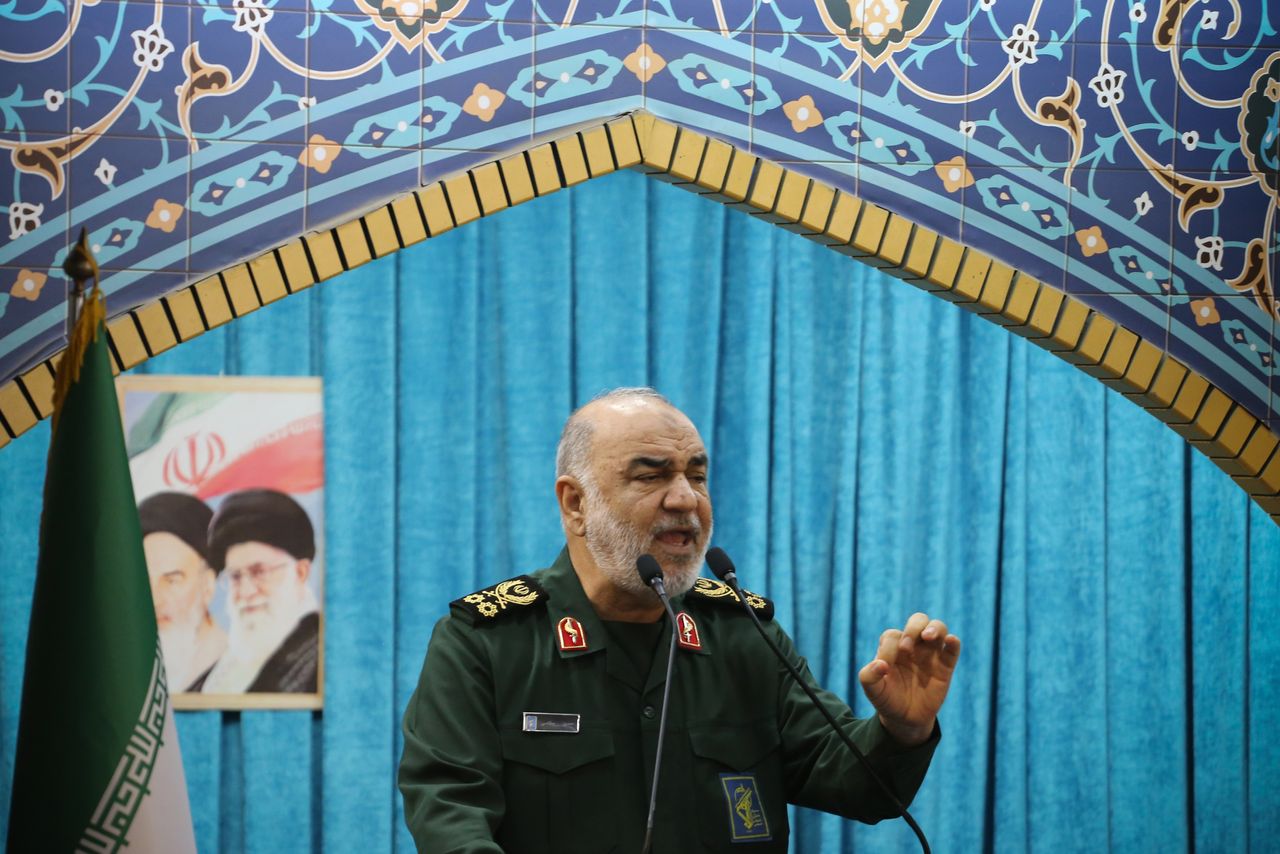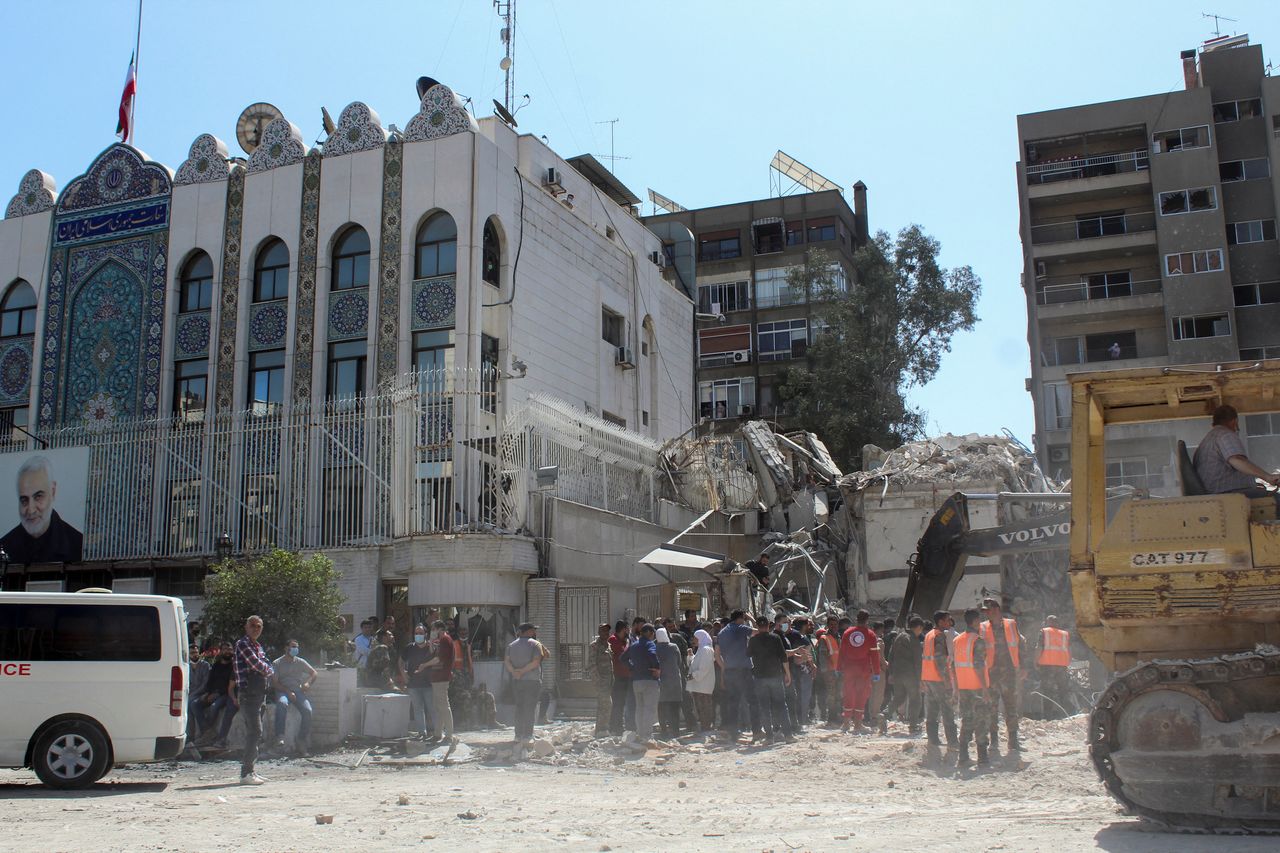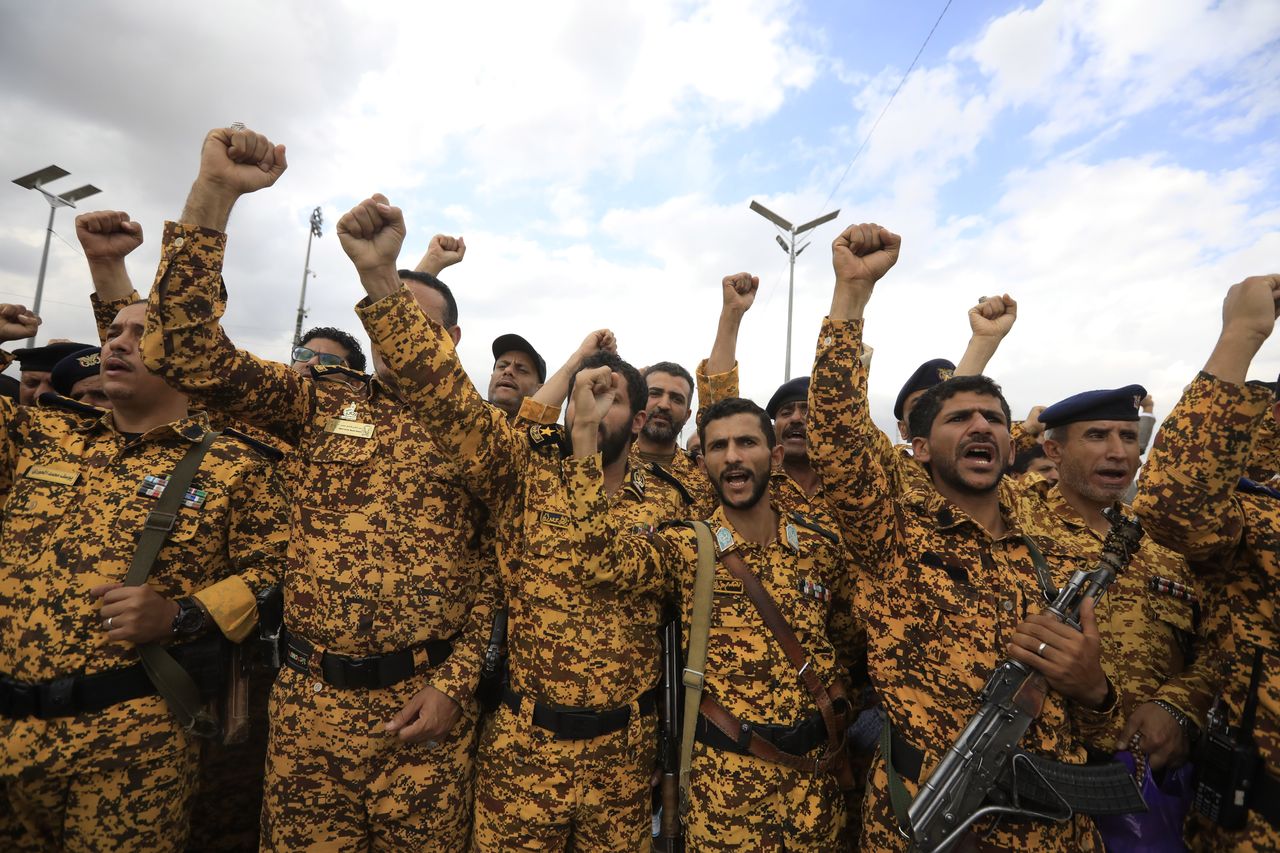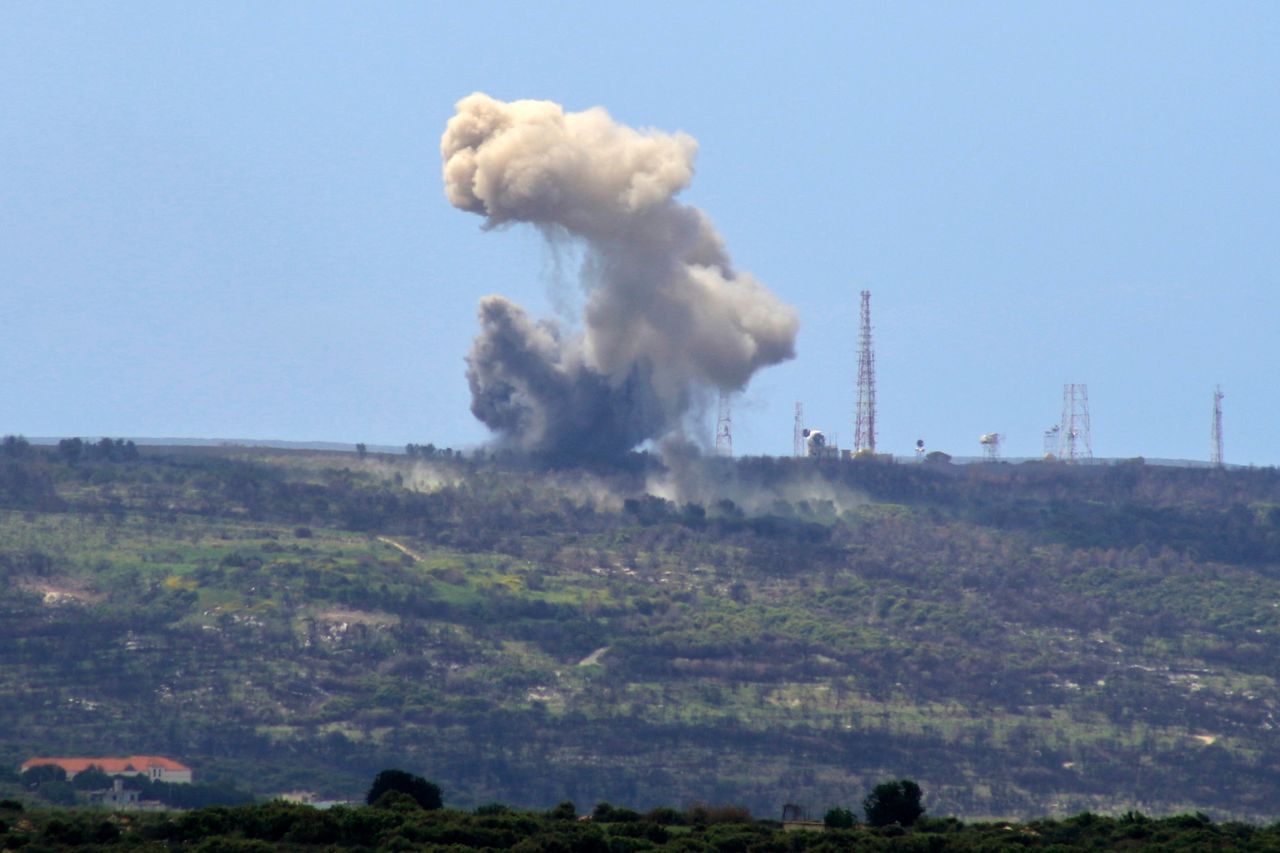ISTANBUL—For two decades, Iran stayed in the shadows and relied on militias that it funded around the Middle East in its deadly fight with Israel. Its direct attack on Israel last weekend marked a strategic shift, and a major gamble.
Iran had long known it had a weaker conventional military compared with Israel and its top ally, the U.S. For most of its existence since the 1979 Islamic revolution, Tehran had few friends in foreign capitals to support a straight-on attack on a U.S. ally.
Iran’s massive drone and missile strike on Israel—which its military took full credit for and vowed to do again if Israel retaliated—came after years of building stronger diplomatic ties with American rivals such as Russia and China, mending fences with neighbors such as Saudi Arabia and building up its economy through illicit oil sales. It marked a dramatic illustration of Tehran’s shift away from accommodation with the West and toward open confrontation with the U.S. and its allies.
Now, Iran and Israel stand on the brink of an escalatory cycle of violence that poses extreme dangers for both sides. Israeli war cabinet members have said the country will strike back at a time and place of its choosing, with U.S. officials saying it is likely to come soon.
A growing faction of Iranian hard-liners has been calling for tougher action against Israel, as it inflicted heavy damage on Tehran’s network of militias, including a strike this month on a diplomatic facility in Damascus that killed senior military officers. For many Iranian hard-liners, that attack demanded a paradigm-shifting response.
“We have decided to create a new equation,” said Maj. Gen. Hossein Salami, the head of Iran’s Islamic Revolutionary Guard Corps, the powerful paramilitary organization that carried out Saturday’s attacks. “From now on if the Zionist regime attacks our interests, assets, figures and citizens anywhere, we will reciprocally attack it from the origin of Iran,” he told state television Sunday.
The shift bears enormous risks for Tehran, handing Israel an opportunity to change the conversation away from the internationally unpopular war in Gaza and presenting a test for Iran’s military capabilities that it may not be up for.
“The Iranians aren’t looking for popularity. They’re looking for leverage,” said Jon Alterman, a former State Department official who is now senior vice president at the Center for Strategic and International Studies in Washington.
“The Iranians feel they are in an existential battle with the United States and its allies and partners, regardless of what they do. So they don’t see a choice except taking a risk. And they see their continued survival as a victory,” he said.

The attack comes after Iran began supplying Russia with drones that have been used to attack Ukraine and helping build a drone factory on Russian soil—moves that alarmed U.S. officials and helped give Moscow an edge in the war in Ukraine. Iran has also built out its nuclear program since the U.S. pulled out of its deal with Tehran in 2018, sparking worry the country is closer to building such a weapon—something Iran denies. U.S. officials say they don’t believe Iran is currently working on building a nuclear weapon.
As recently as February, Iranian officials said they had identified only two red lines that would prompt a large-scale attack on Israel: a direct strike on its strategic assets within Iran, such as its nuclear and petrochemical facilities, or a ground offensive against the Lebanese militia Hezbollah, a valuable ally that is one of Israel’s most dangerous enemies.
Even when Israel struck a building hosting Iranian consular activities, a military retaliation wasn’t a given, said advisers to the Revolutionary Guard and the Syrian government. Iran could have decided not to retaliate, these people said. It could have decided not to designate the building as part of its territory and ignored the death of its commanders, as it had done with years of previous attacks on its assets in Syria, they said.
Israel hasn’t taken responsibility for the Damascus attack, and Israeli officials said intelligence showed the building wasn’t a real diplomatic facility but a building used for Iranian military purposes.

Iran decided to intervene under pressure from allied militias, a group that calls itself the Axis of Resistance, which was getting repeatedly attacked by Israel and the U.S., according to a Revolutionary Guard adviser.
At a meeting of intelligence and Guard leaders Monday, Ali Akbar Ahmadian, the secretary of Iran’s Supreme National Security Council, said “the decision was made due to growing frustration by [Yemen’s] Houthis and others in the ‘resistance’ that Iran was not doing anything,” said the adviser.
“With a backdrop of Gaza, it really increased the pressure in terms of showcasing that Iran was still a leader in this Axis, that was kind of confronting Israel,” said Dalia Dassa Kaye, a senior fellow at UCLA’s Burkle Center for International Relations. “I think there was a sense that Israel was in the driver’s seat, and they needed to turn the tables.”
Though the Iranian attack caused little damage and few injuries, the scale of the strikes was a departure for Iran. Previously, its hallmark was militant groups that could pressure adversaries such as Israel while Iran maintained its distance.
During this shadow war, Israel, it is widely believed, killed Iranian nuclear scientists, launched cyberattacks on Tehran and carried out more than 400 airstrikes against Iranian-linked targets in Syria and elsewhere in the region, The Wall Street Journal previously reported.

Israel intensified those strikes on Iranian targets in the aftermath of Hamas’s Oct. 7 attack and as the war in Gaza continues. Suspected Israeli strikes have killed at least 18 Revolutionary Guard members in recent months, culminating in the April 1 strike in Damascus that killed a top Iranian general and prompted Iran’s retaliation.
“This is a massive change of the terms of engagement. And I think it’s obviously deliberate in order to draw some very clear and deliberate red lines under their conflict with Israel,” said Sanam Vakil, director of the Middle East and North Africa program at Chatham House in London.
Iran warned in advance that an attack was coming, informing Oman and Switzerland, two countries that are traditional intermediaries between Iran and the West, giving Israel and its Western and regional partners time to prepare, a step that likely limited damage from the strike.
Still, in contrast to previous rounds of escalation, the scale of the attack suggested an attempt to inflict real damage inside Israel, military analysts said, with more than 300 total missiles and drones of various types deployed. It took a complex joint operation with the U.S. and Arab neighbors to down most of the projectiles.
“If they wanted to stage a symbolic strike, why use so many systems? If it’s just symbolic, what does the real strike look like? They can’t launch a thousand missiles at once,” said Fabian Hinz, an expert on Iranian missiles and drones with the International Institute for Strategic Studies.
A central strategic question now is what role, if any, Hezbollah will play in any escalation between Israel and Iran. The Lebanese group has waged a slow-burning conflict with Israel since the beginning of the war in Gaza, continuously exchanging fire with Israeli forces but holding back its more sophisticated arsenal of precision-guided missiles.
“The shadow war will continue,” said Chuck Freilich, a former deputy national security adviser in Israel. “The question is whether there will be open conflict.”

Write to Jared Malsin at [email protected] and Benoit Faucon at [email protected]
News Related-
Russian court extends detention of Wall Street Journal reporter Gershkovich until end of January
-
Russian court extends detention of Wall Street Journal reporter Evan Gershkovich, arrested on espionage charges
-
Israel's economy recovered from previous wars with Hamas, but this one might go longer, hit harder
-
Stock market today: Asian shares mixed ahead of US consumer confidence and price data
-
EXCLUSIVE: ‘Sister Wives' star Christine Brown says her kids' happy marriages inspired her leave Kody Brown
-
NBA fans roast Clippers for losing to Nuggets without Jokic, Murray, Gordon
-
Panthers-Senators brawl ends in 10-minute penalty for all players on ice
-
CNBC Daily Open: Is record Black Friday sales spike a false dawn?
-
Freed Israeli hostage describes deteriorating conditions while being held by Hamas
-
High stakes and glitz mark the vote in Paris for the 2030 World Expo host
-
Biden’s unworkable nursing rule will harm seniors
-
Jalen Hurts: We did what we needed to do when it mattered the most
-
LeBron James takes NBA all-time minutes lead in career-worst loss
-
Vikings' Kevin O'Connell to evaluate Josh Dobbs, path forward at QB
